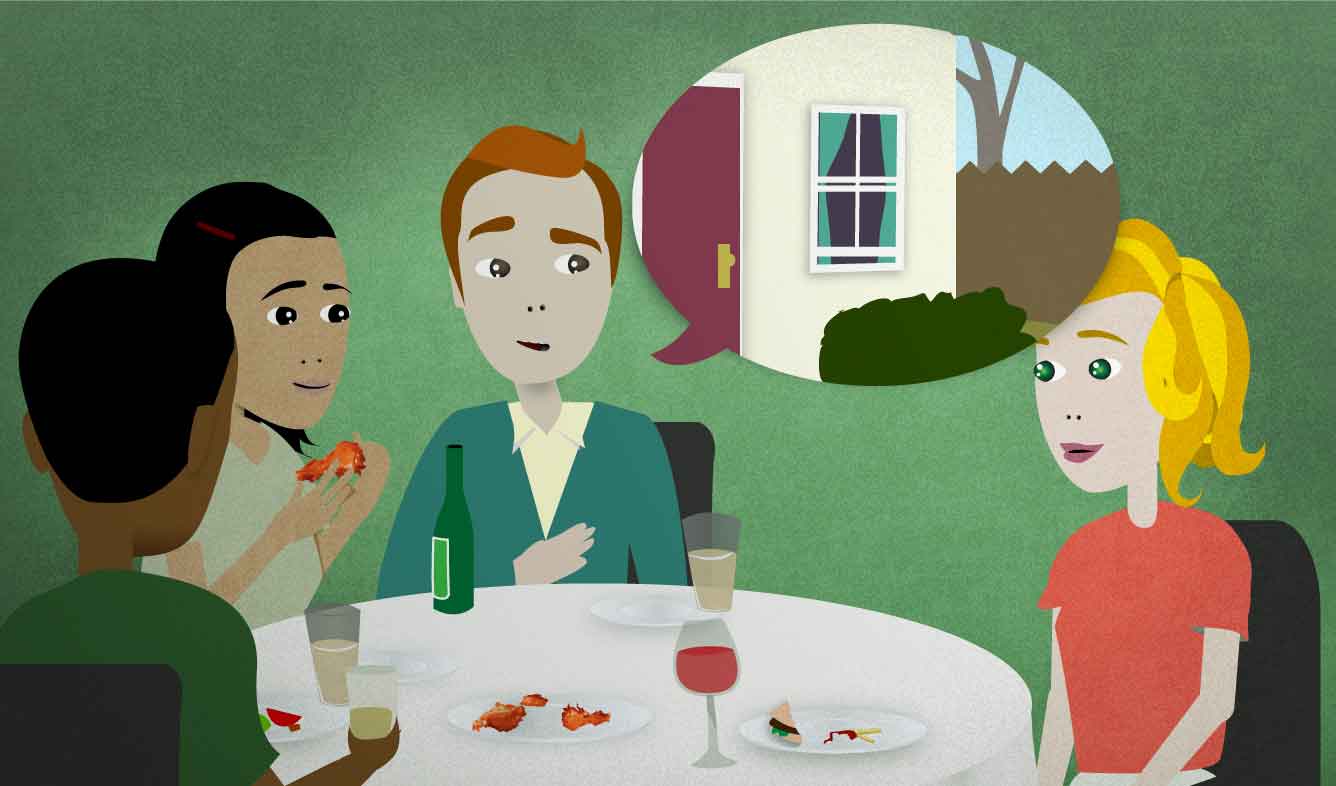“It turns out that my roommate had left his window unlocked anyway.”
You're telling a story about a silly mistake you made. You thought you couldn't get into your house, so you spent the night in a cheap hotel. This is the punchline of the story.
It turns out that my roommate had left his window unlocked anyway.
Want Video and Sound? Follow us on YouTube

it turns out that (clause)
You use "it turns out that ___" when you got some information wrong, and you're now giving the correct information. You first have to say what you thought was true. (Or the listener might already know this from other conversations you've had.) Then you say something like:
It turns out that it's on Wednesday, not tomorrow.
So it turns out that I had been waiting on the wrong side of the train station.
You can use this phrase in the past tense too:
I thought it was at ten. It turned out that it was at eleven.
(someone's) roommate
In the U.S., people call the people that they share a house or apartment with "my roommate". This sounds strange to British and other English speakers because you don't actually share a room with your roommates. But that's the meaning that "roommate" has in American English.
I'd (done something)
You use "had (done)" when you're telling a story, and you want to talk about something that happened before what you're describing. This grammatical form is known as "past perfect".
In the example above, "my roommate had left his window open" happened before the speaker spent the night in a hotel.
Here's another example from another post:
I was really sleepy because I had gone out drinking the night before.
leave (something) (open/unlocked/untied/etc.)
When you "leave __ open", it means that you don't close it:
Hey! Who left the refrigerator open?
In the same way, when you don't close, lock, tie, wash, zip, finish, etc. something, you "leave it ___":
When we lived out in the country, we always left the door unlocked.
(sentence) anyway.
Use the word "anyway" to express that:
- someone did something even though it was a bad idea, others disagreed, etc.
They told me not to go, but I went anyway.
- something which was previously said doesn't matter
A: You shouldn't buy that. You probably won't use it much.
B: Yeah, I guess you're right. And I don't have enough money for it anyway.
